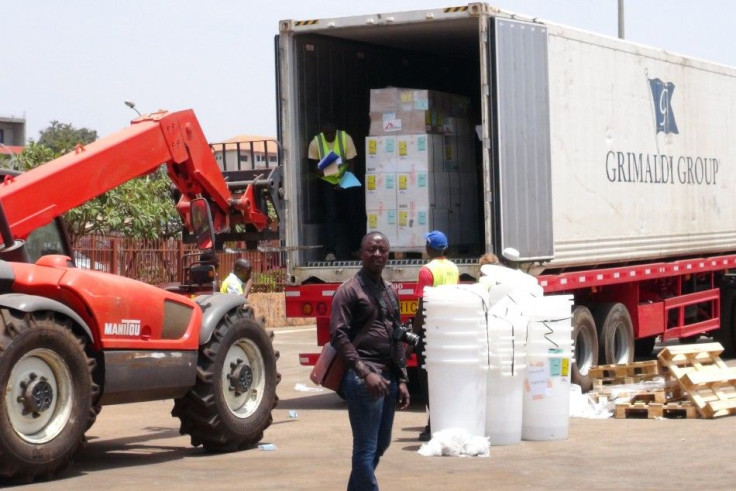Airborne Version of Ebola Virus Could Wipe Out 1.2 Million; Aussie Doctor Appeals For Help

As the Ebola virus continues to spread in West Africa, health experts fear the death toll will increase exponentially. According to an econometric simulation model by research assistant Francis Smart from the Michigan State University, the number of deaths could rise to 1.2 million in six months if the virus becomes airborne.
In a WND report, Smart considered the analysis of Canadian researchers who provided evidence that Ebola virus could be transmitted through air particles. He said the virus may infect another human being simply by breathing in that person's direction.
Smart used the information provided by the World Health Organisation in its statement last month that the Ebola virus could infect about 20,000 people in West Africa before it can be contained. He believes the number is based on the assumption that the efforts to contain the deadly outbreak have full international support.
Smart said failing to back the plan of WHO will only cause the disease to spread further. He admitted that the figure appeared "exaggerated" when compared to the 3,000 Ebola cases reported. WHO has previously declared it will take about six to nine months to stop the outbreak.
The research assistant took a more dramatic approach and painted a grim scenario if current efforts to contain Ebola failed. Smart projected as many as 4.7 million people will be infected and will result in 1.2 million deaths if the virus continues to rage. He believes the scenario is a possibility since Liberia has a population of more than 4 million, Guinea has 10 million people and Sierra Leone has 6 million.
Australian doctor and chief of foreign medical teams working with WHO, Dr Ian Norton, said the world is racing against time to control Ebola. In an interview with ABC, the doctor said that health workers are in dire need of massive field hospitals in West Africa.
Norton believes there is a "narrow opportunity" to contain the outbreak. He revealed WHO and the ministries of health in the three countries mostly affected by Ebola are considering alternative ways to manage and contain the infected. He appealed for international medical teams to help build field hospitals. He said a core group of 30 to 40 medical staff are needed to run large treatment centres.
Reports said the mortality rate of Ebola without medical treatment is 90 percent. Norton believes better care and healthcare facilities for patients can help improve the situation.




















